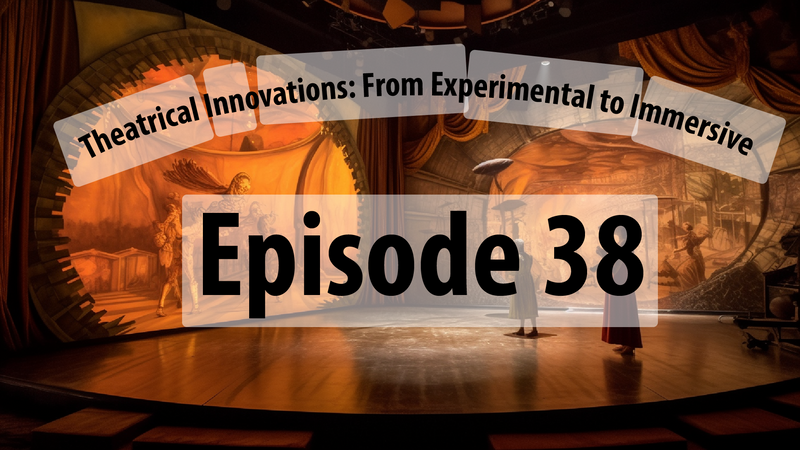Theatrical Innovations: From Experimental to Immersive
In theatre, innovation has always been the lifeblood of progress. From the ancient Greek theatres to the grand stages of Shakespearean England, the evolution of theatrical forms has been marked by a ceaseless quest for novelty and ingenuity. Today, we find ourselves at a crossroads where experimental theatre is giving way to the rise of immersive experiences. While this shift is undoubtedly captivating and holds great potential for audience engagement, we must approach these developments with a discerning eye, questioning their actual artistic value and the implications they may have for the integrity of the theatrical medium.
It is essential to understand its historical antecedents to fully grasp the significance of the current trend toward immersive theatre. The experimental theatre movement of the 20th century, spearheaded by luminaries such as Antonin Artaud and Bertolt Brecht, sought to challenge established conventions and break free from the shackles of realism. Instead, this avant-garde wave emphasized the importance of audience participation and interaction, blurring the boundaries between performer and spectator. Immersive theatre has emerged from this fertile ground, harnessing new technologies and techniques to create heightened sensory experiences.

At first glance, the allure of immersive theatre is undeniable. The promise of being fully enveloped in a narrative, physically and emotionally engaged, is a tempting prospect. Gone are the traditional proscenium arches and distant stages; instead, audiences find themselves thrust into the heart of the action, interacting with the performers and becoming active participants in the unfolding drama. It is an intoxicating fusion of reality and fiction, an experience that demands our attention and challenges our preconceptions of what theatre can be.
Yet, we must remain vigilant in our enthusiasm for this dramatic evolution. For all its novelty, immersive theatre risks sacrificing the essence of the art form it seeks to transform. The theatre has always been a delicate balancing act between illusion and reality, where imagination is given free rein. By erasing the boundaries between the stage and the audience, immersive theatre threatens to undermine this fundamental dynamic. It risks blurring the line between performance and everyday life to the point where the distinction becomes arbitrary, leaving us adrift in a sea of heightened sensory stimuli but devoid of the transformative power that theatre possesses at its core.
Furthermore, the immersive theatre trend risks reducing the role of the playwright and the text itself. Traditional theatre has long relied on the written word as the bedrock of its artistic expression. The carefully crafted dialogue, the nuanced characterizations, and the exploration of profound themes are the fruits of countless hours of laborious writing. In the realm of immersive theatre, however, the focus often shifts away from the written text and toward the physicality of the experience. While this may be an exciting departure from the norm, we must not allow the importance of the playwright and the literary tradition to be overshadowed. After all, it is the written word that has preserved the legacy of playwrights such as Sophocles, Shakespeare and has been for centuries. We must be cautious not to discard this invaluable heritage in our pursuit of novelty.
To assess immersive theatre's impact, we must also consider its broader implications for the theatrical landscape. The shift towards immersive experiences inevitably raises questions about accessibility and inclusivity. While the heightened sensory engagement of immersive theatre may be captivating for some, it can also be overwhelming and exclusionary for others. The sensory overload and the demand for active participation may pose significant barriers for individuals with specific disabilities or sensory sensitivities. We must not allow our quest for innovation to create a form of theatre that inadvertently marginalizes and alienates those who cannot fully engage with it.


